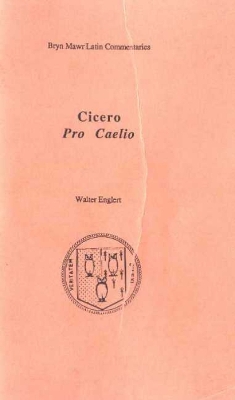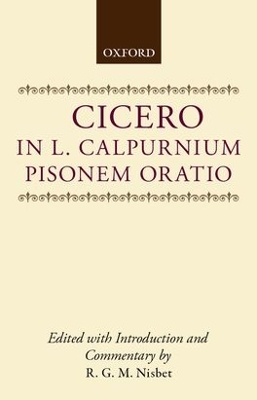Clarendon Paperbacks
2 total works
In April 56 BC, M. Caelius Rufus was prosecuted for vis by L. Sempronius Atratinus; Cicero successfully defended him, making this speech at his trial. Shortly before, Caelius, a prominent figure in public life at Rome, had ended a two year affair with Clodia (probably to be identified with the 'Lesbia' of Catullus' poetry), much against her will. Although his opponents took the opportunity of the trial to attack him on political grounds, the actual indictment
against Caelius was prompted by social reasons. Clodia herself, fiercely resentful of her rejection, was closely involved with the case, and is mentioned frequently in the Pro Caelio. Cicero's speech gives an insight into the political events of the period; it also helps us reconstruct the 'social
background' of Catullus, and is of special interest to the literary historian.
This third edition reproduces A. C. Clark's text, with the significant addition of a seventeenth-century conjecture which has been thought to identify Caelius' birthplace. The notes and appendices have been updated in several respects; appendices II and III, discussing the place of Caelius' birth and the connection between Caelius and Caullus, have been rewritten and new notes have been integrated into the commentary.
This paperback reprint replaces the hardback edition first published in 1960.
against Caelius was prompted by social reasons. Clodia herself, fiercely resentful of her rejection, was closely involved with the case, and is mentioned frequently in the Pro Caelio. Cicero's speech gives an insight into the political events of the period; it also helps us reconstruct the 'social
background' of Catullus, and is of special interest to the literary historian.
This third edition reproduces A. C. Clark's text, with the significant addition of a seventeenth-century conjecture which has been thought to identify Caelius' birthplace. The notes and appendices have been updated in several respects; appendices II and III, discussing the place of Caelius' birth and the connection between Caelius and Caullus, have been rewritten and new notes have been integrated into the commentary.
This paperback reprint replaces the hardback edition first published in 1960.
'Will long remain not only the standard commentary on this work, but an indespensable aid to every student of Cicero. Nisbet's choice of the neglected In Pisonem was a happy one ... If Nisbet's treatment of textual matters deserves the highest praise, scarcely less admirable is the lucid conciseness of his explanatory notes.' Journal of Roman Studies

